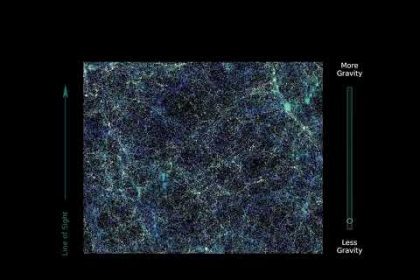The planet Earth has undergone fundamental changes and human activities are known as the main cause of these changes. 2024 was a year full of unprecedented records in the field of climate change. In July, the average global temperature reached its highest level in at least 175 years, and July 22 was the hottest day on record.
According to the scientific news department of Tekna Technology Media, last summer was also the hottest summer since around 1880. This year’s hurricane season was marked by an early and intense onset of Hurricane Berl, the first Category 4 storm on record. Also, a report released in June confirmed that human-caused global warming has peaked.
But scientists’ concern is not limited to temperature records. Natural glaciers are melting at an unprecedented rate, and this has caused an irreversible increase in the sea level. Coastal communities are under the threat of stronger and more frequent storms caused by rising global temperatures and rising sea levels. Wildlife also loses its habitat due to rapid environmental changes and is forced to migrate. Hurricane Helen, which occurred last month, is a clear example of the destructive effects of climate change on human societies.
These realities are very difficult to face, especially when we realize the depth and breadth of this crisis. However, having this valuable information is the first step in dealing with climate change. One of the biggest challenges in this field is translating scientific data into practical actions and persuading policy makers to make fundamental changes in policies and procedures. The climate crisis is a complex and multifaceted challenge that requires global cooperation.
Cedric David, a scientist at NASA’s Jet Propulsion Laboratory (JPL), believes that we need accurate and continuous observations from Earth to better understand climate change and the relationship between different phenomena. He says: “For this purpose, we need a fleet of satellites that will constantly monitor the health of the planet like skilled doctors.”
Satellites play a very important role in the study of climate change. From communication and navigation satellites to research satellites, each of these instruments provides valuable information to scientists. Satellites are able to measure changes in the Earth’s atmosphere, oceans and surface with very high accuracy. For example, satellites can measure the concentration of greenhouse gases in the atmosphere, monitor changes in Earth’s vegetation, and monitor the melting of glaciers.
“Space exploration has not only helped us learn more about other planets, but has also deepened our understanding of our own planet,” says David.
One of the most important data that satellites provide us with is the information related to the rise of the sea level. Altimeter satellites have recorded the continuous rise in sea level for more than 30 years. These data conclusively show that climate change is happening and its effects on human life and the environment are very serious. David believes that all this information is necessary to deal with climate change. He says: “Until now, the only place we have found life is planet Earth. We must protect this planet as our only home.
RCO NEWS

















